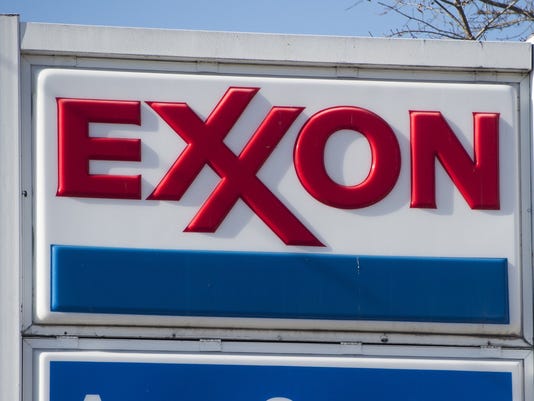Because Exxon and Shell don’t radiate happiness

Two dissident directors enter the board of Exxon, while a court sentence requires Shell to comply with the Paris agreements
Green revolution in sight for ExxonMobil and Shell. But not for industrial plans drawn up by the boards of companies.
The first will deal more concretely with the advancement of renewables by the will of the newborn Engine No.1 fund, the second, on the other hand, will have to do so due to a Hague ruling that imposed on Big oil to reduce CO2 emissions by 2030 by 45% compared to 2019. Let's go step by step.
WHAT HAPPENED IN EXXONMOBILE
Let's start with the US oil company. Despite the resistance of the top management, the Engine No.1 fund managed to include two directors in the new board of Exxon who, in the name of climate change, ask the company to focus on renewable energy, reshaping and reviewing the investments of recent years ( always focused on fossils).
Engine No.1 had submitted a slate of four dissident members for the board: Gregory Goff, former CEO of Andeavor; Kaisa Hietala, former vp of Neste; Alexander Karsner, former senior Energy Department official and Google X strategist, and Anders Runevad, former CEO of Vestas Wind Systems.
THE TWO NEW DIRECTORS
To be elected Goff and Hietala, despite the recount of votes wanted by the top management of Exxon.
Gregory J. Goff is the former CEO of Andeavor, who under his leadership embarked on a financial transformation that resulted in the company generating a total return of more than 1,200%. He has held various leadership positions at ConocoPhillips for nearly 30 years and served as Executive Vice President of Marathon Petroleum Corporation.
Kaisa Hietala is former Executive Vice President of Renewable Products at Neste, an expert in strategic transformation in the energy sector, with a particular focus on renewables. She is partner and co-owner of Gaia Consulting, a sustainable business consulting firm focused on helping companies transform climate challenges into profitable business opportunities.
Both want Big Oil to join the energy transition and more investments in renewable energy.
THE ALLIES OF THE FUND
Engine No.1 owns only 0.12% of Exxon, but has long been fighting with the company for greener policies and at the meeting, writes Il Sole 24 Ore , it managed to find important allies, such as the Californian Calpers, the UK manager LGIM, the ISS shareholder advisory leader, and BlackRock, Exxon's second largest shareholder behind Vanguard, who would vote for three of four alternative candidates on the board.
EXXON POLICY (UNTIL TODAY)
Exxon, despite the ongoing energy transition, has continued to invest in new exploration and extraction of crude oil, without setting any zero emissions targets for the next few years.
AN EXPENSIVE BATTLE
The entry of the two dissident directors cost Engine No.1 30 million. To counter the revolt, however, Exxon Mobile has spent (and lost) 35 million dollars.
TITLE FIACCO
The shares of Big Oil, in this 2021, remain 17% below the levels of January 2020 and the stock, last summer, left the Dow Jones. Since 2013 it has burned hundreds of billions.
WHAT HAPPENED IN SHELL
Competitor Royal Dutch Shell will also have to approach greener policies. She is forced by a historic conviction from the Dutch district court in The Hague, asking the company to align itself with the Paris climate accords.
“Businesses have an independent responsibility, regardless of what the states do”, and that is to “respect human rights”, established The Hague. And this is why Big Oil, by 2030, will have to reduce the CO2 emissions of the entire group, its suppliers and its customers by 45% (compared to the level of 2019). The lawsuit was brought by the Friends of the Earth association, in concert with 6 NGOs, including Greenpeace and ActionAid, and 17,000 Dutch citizens.
AN IMPORTANT JUDGMENT
It is a historic ruling: for the first time, a court imposes green objectives on a private company.
"This is undoubtedly a significant development in the global climate dispute and could resonate in courtrooms around the world," said Michael Burger, director of Columbia Law School's Sabin Center for Climate Change Law, according to Il Sole 24 Ore. .
HOW SHELL MOVES
To date, the company has only committed to reducing the total production of hydrocarbons through divestments, and to reducing emissions by favoring gas. For oil, however, Shell has decided never to exceed the 2019 extraction levels again.
IN DANCE (ALSO) THE FUTURE OF THE OTHER MAJORS
What happened to Exxon and Shell also weighs on the future of the other companies in the sector.
According to Moody's, credit risk has increased: the two events "represent a significant change of landscape for the companies, which until now had prevailed in the courtrooms and generally managed to reject the most significant shareholder motions on climate-related issues" .
HOW MUCH THE ENERGY TRANSITION COST
What is certain is that adapting to the Paris agreements and starting the energy transition, however, has a significant cost for the oil majors. According to what was calculated by the Sole 24 Ore, in fact, Big Oil should reduce production by 4.5 million barrels per day, or a cut equal to about half of that made by Opec Plus at the peak of the pandemic.
Exxon, Chevron and ConocoPhillips, plus the European Shell, BP, Eni and Total, in particular, should overall decrease oil and gas extraction by 35% by 2040. Among the seven, only BP, in the strategic plan, is committed to a reduction of hydrocarbons will drop by 40% by 2030.
This is a machine translation from Italian language of a post published on Start Magazine at the URL https://www.startmag.it/energia/perche-exxon-e-shell-non-sprizzano-felicita/ on Mon, 07 Jun 2021 07:47:57 +0000.
